Lodi Eye
LodiEye provides additional information on trending stories / topics published by local media and shared on local social media accounts.

Investor-Owned Homes in San Joaquin County & Lodi
California's most affordable counties have become magnets for real estate investors, and San Joaquin County—home to the Stockton-Lodi metropolitan area—is squarely in their sights. Nearly 20% of homes statewide are now owned by investors, with investor purchases accounting for 26.8% of all U.S. residential property sales in Q1 2025. San Joaquin County's relative affordability compared to the Bay Area and Sacramento makes it a prime target, with average home prices roughly 56% lower than in the Bay Area.
This report examines the scale of investor activity, verified ownership data, how investors affect home prices, and the potential consequences for Lodi residents and prospective homebuyers.
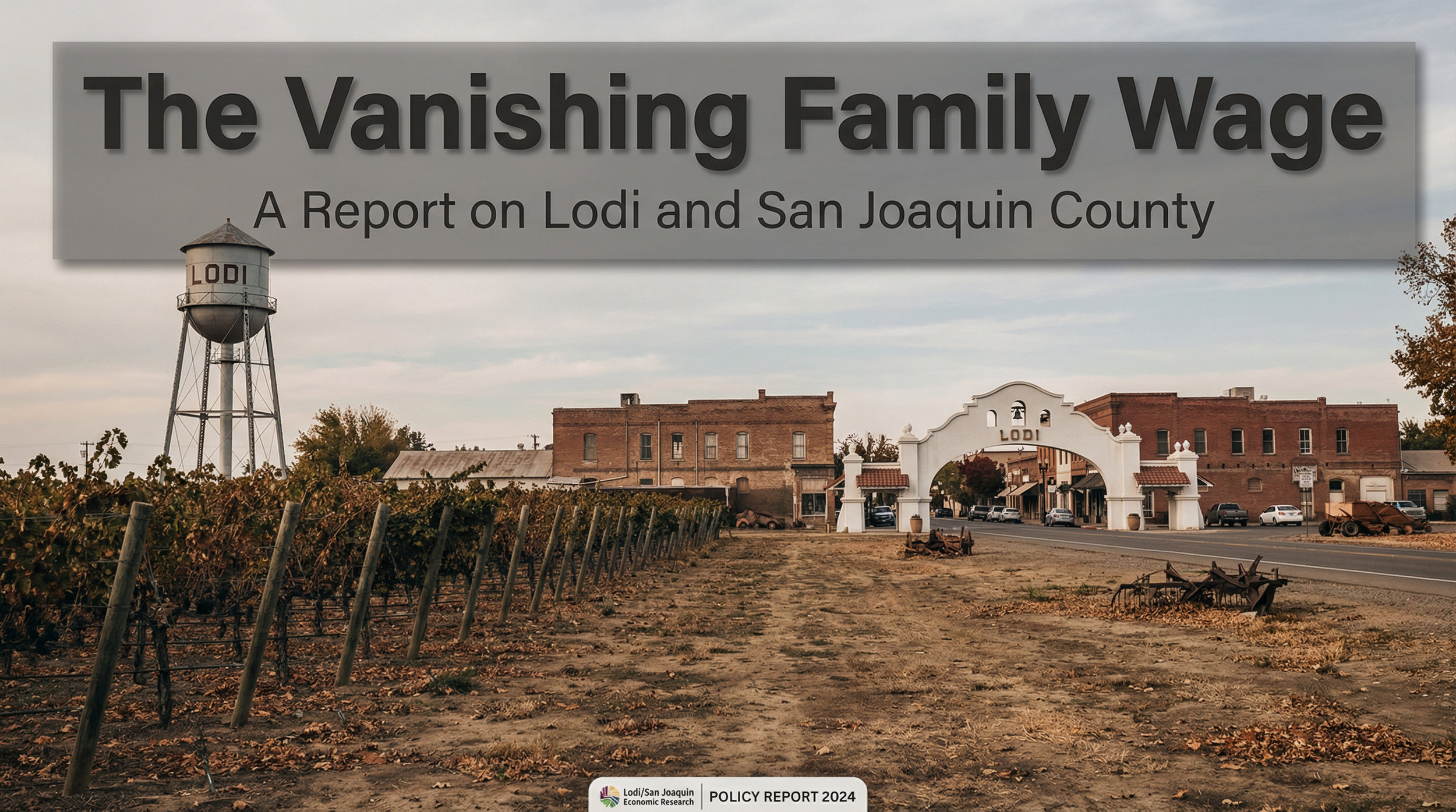
The Vanishing Family Wage
In 1975, a single-income family in Lodi could comfortably purchase a home, raise two children, and build savings on one wage earner’s salary from a local agricultural, manufacturing, or public-sector job. The median home cost roughly 2.5 times the median household income. Today, that same home costs more than 6 times the median household income, childcare alone can consume 20–30% of a family’s take-home pay, and the commute required to earn higher wages adds thousands of dollars in annual transportation costs.

Consumer Price Analysis - Lodi & San Joaquin County
Lodi and San Joaquin County residents face a convergence of economic forces driving consumer prices higher across virtually every spending category in early 2026. This analysis examines five interconnected pressure points: federal tariffs on imported goods, the weakening U.S. dollar, global oil market dynamics, California refinery shutdowns, and local utility rate structures. Together, these factors create a compounding effect that raises costs not just at the point of purchase, but throughout the entire supply chain.

California Oil Industry: Refinery Closures, Pipeline Shutdowns, and the Road Ahead
California's petroleum sector is undergoing a structural transformation that is reshaping how oil is extracted, transported, and refined across the state. With major refinery closures eliminating approximately 17-20% of in-state capacity, critical pipelines shutting down, and an accelerating shift toward imported fuels, the state faces significant near-term price volatility and supply uncertainty.
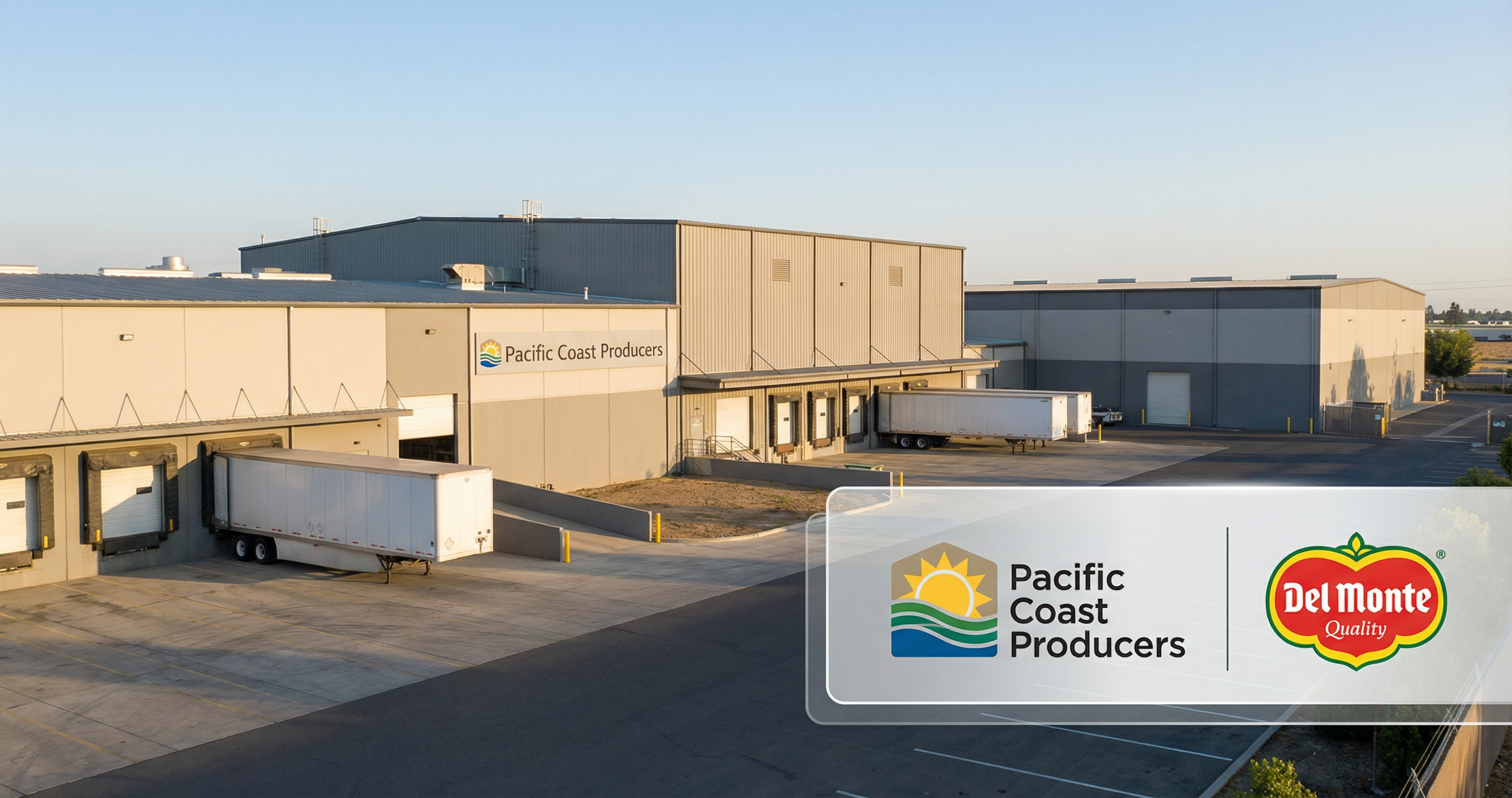
Pacific Coast Producers' Del Monte Acquisition
Pacific Coast Producers (PCP),has emerged as the successful bidder for Del Monte Foods' shelf-stable canned fruit business assets in a court-supervised bankruptcy auction. The transaction, pending court approval on January 28, 2026, includes inventory of canned fruits and fruit cups along with licensing rights to the iconic Del Monte® and S&W® brands for packaged fruit products in the United States, Puerto Rico, and Mexico.

The Petrodollar System & Saudi Arabia's Evolving Geopolitical Relationships
One of the most important clarifications in understanding U.S.-Saudi economic relations: there is no official agreement between the United States and Saudi Arabia to sell oil in US dollars. Saudi Arabia’s evolving relationships with China, Iran, and Saudi Arabia’s neighbors can impact US foreign policy, its economy and currency.
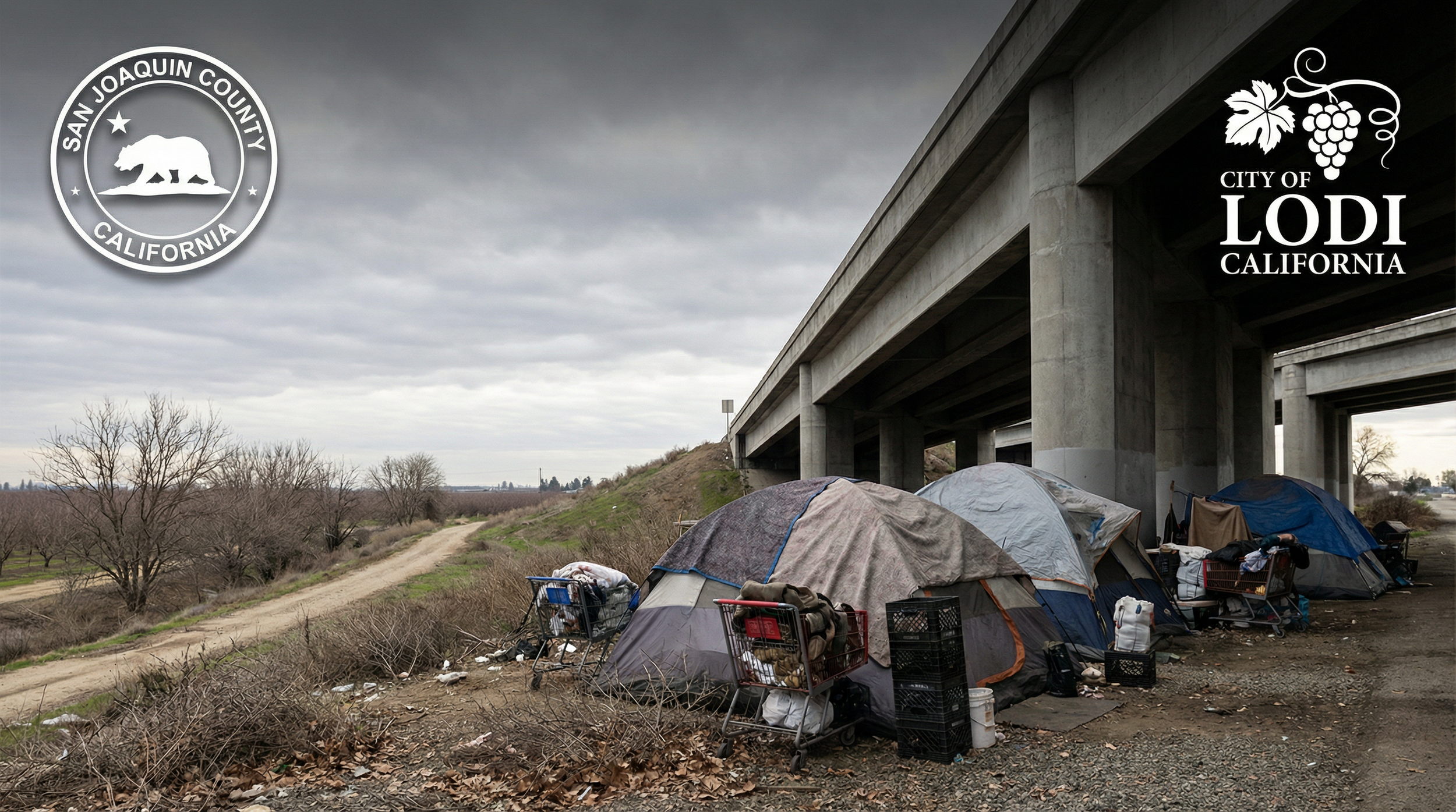
Emerging Trends in San Joaquin County and Lodi - January 2026
San Joaquin County and the city of Lodi face a confluence of intensifying social and economic pressures that reflect broader Central Valley dynamics. The region is experiencing a homelessness crisis of unprecedented magnitude, with the county's unhoused population more than doubling between 2022 and 2024.

China and Russia in Central & South America - January 2026
This report examines the strategic engagement of China and Russia in Central and South America through the lenses of investment, trade, debt relationships, and geopolitical alignment. The landscape has shifted dramatically following the Trump administration's reassertion of the Monroe Doctrine.

Venezuela’s Oil Industry in Global Market - January 2026
Venezuela possesses the world's largest proven oil reserves at approximately 303 billion barrels, surpassing Saudi Arabia's 267 billion barrels. Despite this vast resource base, current production has collapsed to 860,000–1.1 million bpd, down from a peak of 3.5 million bpd in 1998. This represents less than 1% of global oil output from the world's largest reserve holder.
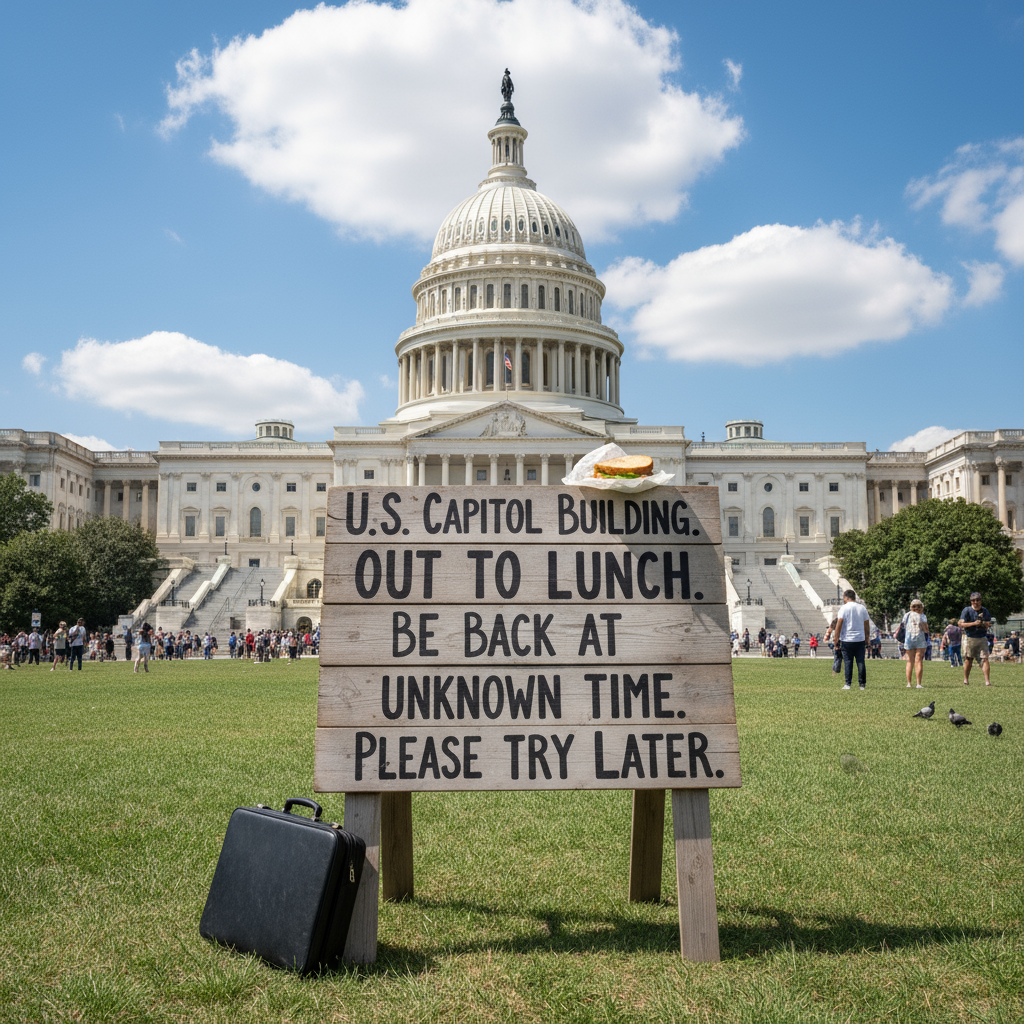
Federal Shutdown Crisis: San Joaquin County Faces Economic Storm
With just three days until the federal government runs out of funding at midnight on September 30, 2025, San Joaquin County and Lodi stand at the epicenter of a potential economic and social crisis that could ripple through every corner of the community. The looming shutdown threatens to upend the lives of thousands of federal workers, disrupt critical services, and deliver a devastating blow to the San Joaquin County economy.
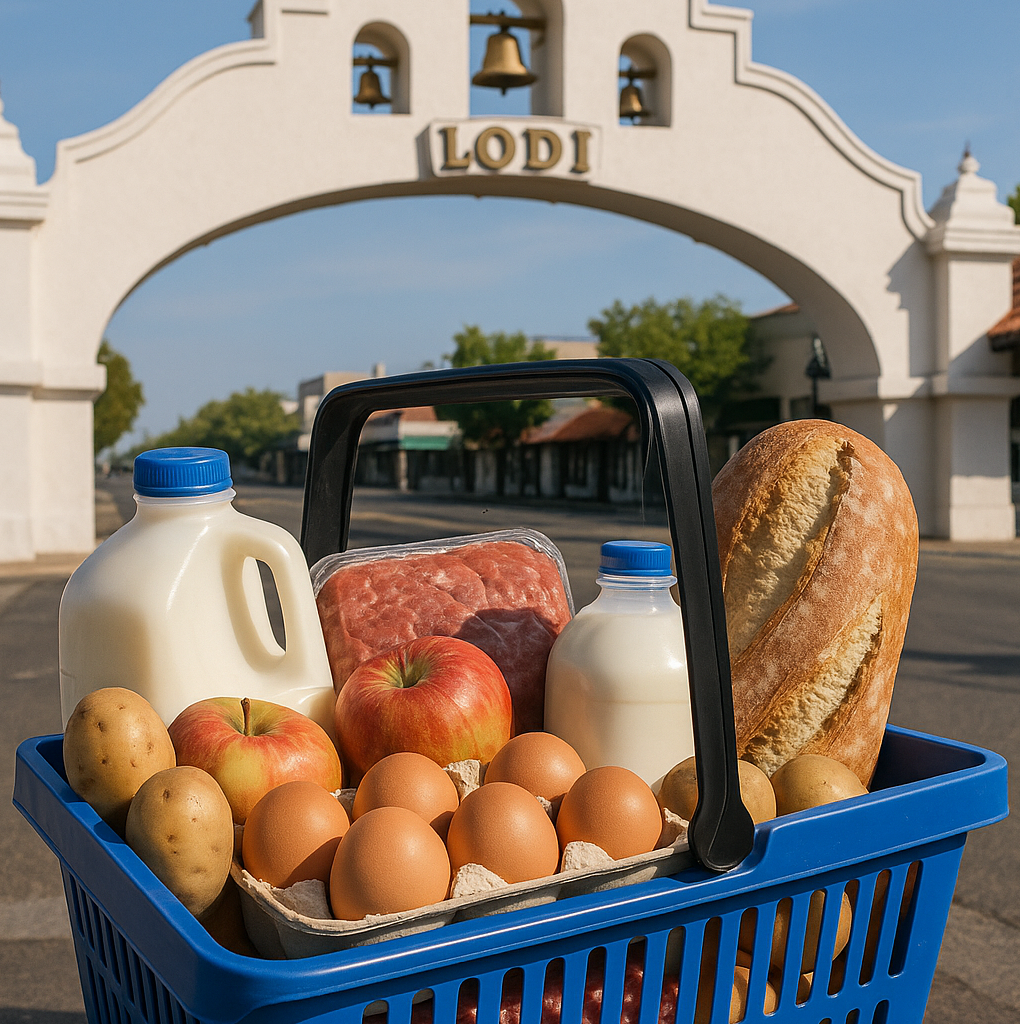
Weekly Grocery Price Trends for Lodi Families (January–September 2025)
Families in Lodi and San Joaquin County have experienced a unique grocery price climate during 2025, diverging sharply from broader inflationary trends across California. Grocery prices in Lodi and throughout San Joaquin remain lower than other parts of the state.

Construction Costs Squeeze Lodi Homebuilders
Lodi homebuilders and contractors are grappling with a challenging economic landscape as federal tariff policies and heightened immigration enforcement drive up construction costs and extend project timelines, threatening to worsen the region's already acute housing shortage.
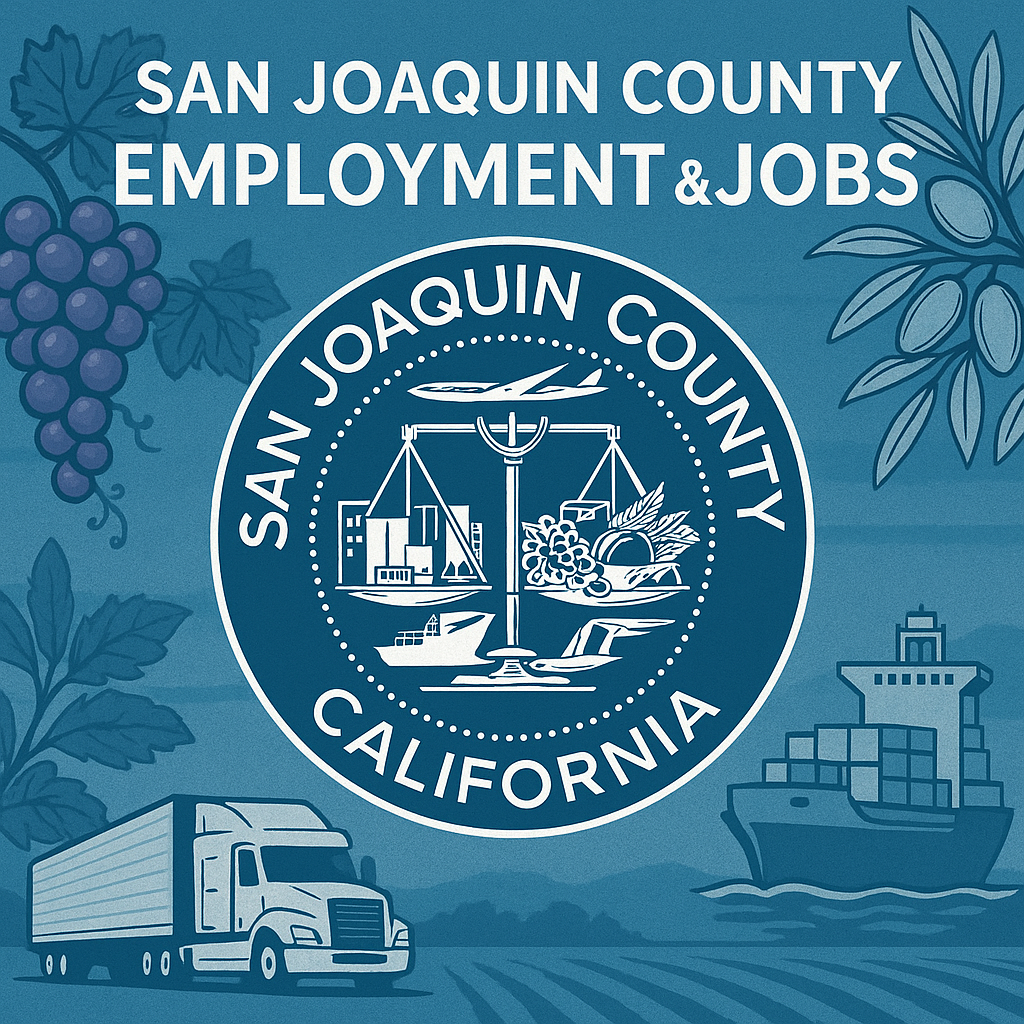
San Joaquin County Employment and Jobs (2024-2025)
San Joaquin County and Lodi lead the nation in job growth with a 5.5% annual employment increase, marking a profound shift from agricultural roots to a diversified economic powerhouse. California's and the US's more diverse and tech centric economies have lower unemployment rates but flatter job growth.
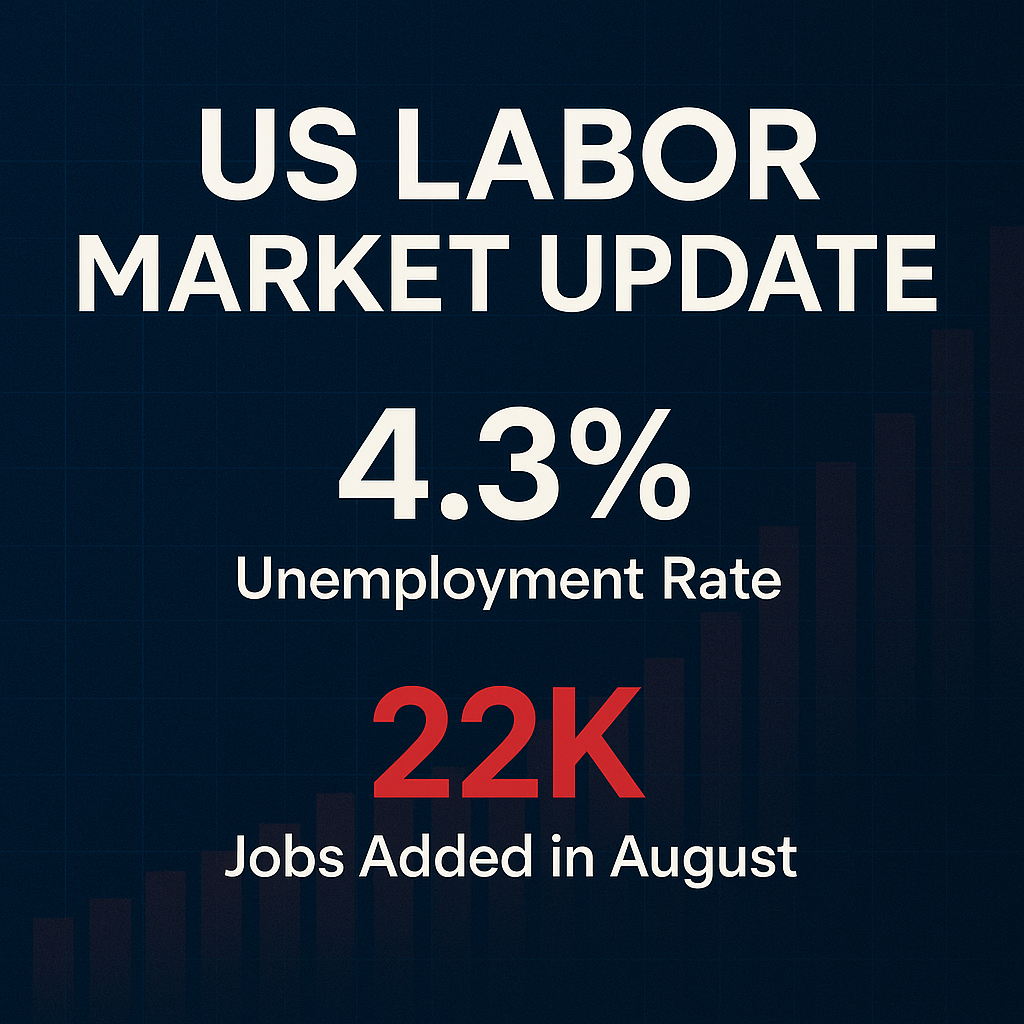
US Employment and Job Creation Over the Past 12 Months
US employment dramatically slowed from robust growth in late 2024 to weak, uneven gains and sectoral declines by late summer 2025. Healthcare led sector growth, while manufacturing and government suffered notable losses. Unemployment ticked higher and workforce participation slipped, raising concerns about the durability of the economic expansion.

Game Changer: Lodi and Sports Tourism
While neighboring cities like Stockton rake in millions from sports tourism and Tracy positions itself as the region's future athletic hub, Lodi finds itself at a crossroads. New research reveals the city possesses significant untapped potential to become a major player in San Joaquin County's booming sports tourism market — but only if strategic investments are made in the right facilities at the right time.

Tariffs and California Wine Exports
The 2025 tariffs have created unprecedented challenges for US wine exporters, with California accounting for 95% of US wine exports and facing an estimated $531 million in revenue losses. The Lodi region, representing approximately 8% of US wine exports, could potentiallly lose $45 million in export revenue, putting 850 jobs and 12,000 vineyard acres at risk

US Domestic and Imported Oil Prices are dropping…
Domestic and imported crude oil prices dropped in May 2025; this trend is expected to continue through October 2025. The reduction in crude oil prices has been reflected in prices at the pump. In California, the minor state excise tax increase and new emissions regulations took effect on July 1; however, these measures have not been sufficient to reverse the overall downward trend in prices, which is attributed to broader market factors.

Residential Solar - Big Changes Coming
Rooftop solar adoption in San Joaquin County will be influenced by federal trade policy, California’s net metering regulations and the One Big Beautiful Bill. The cost of solar instailations will increase signifcantly and homeowners will wait longer for a return on their investment.

California LCFS, 2024 CARB amendments and Gas Prices
The California Air Resources Board (CARB) approved amendments in 2024 that go into effect on July 1st 2025, along with an excise tax increase of 1.6 cents per gallon. This report examines the current CARB amendments in effect and the potential changes to the LCFS Credit Market that could impact gas prices.

California Gas Prices linked to Brend Crude Price
California's gasoline and diesel prices are closely linked to global crude oil benchmarks, particularly Brent crude, due to the state's reliance on imported oil. The conflict between Israel and Iran could potentially close the Hormuz Strait — 25% of the world’s crude oil must transit there. Any restriction on oil shipments would raise the global price of crude oil, specifically Brent Crude.
